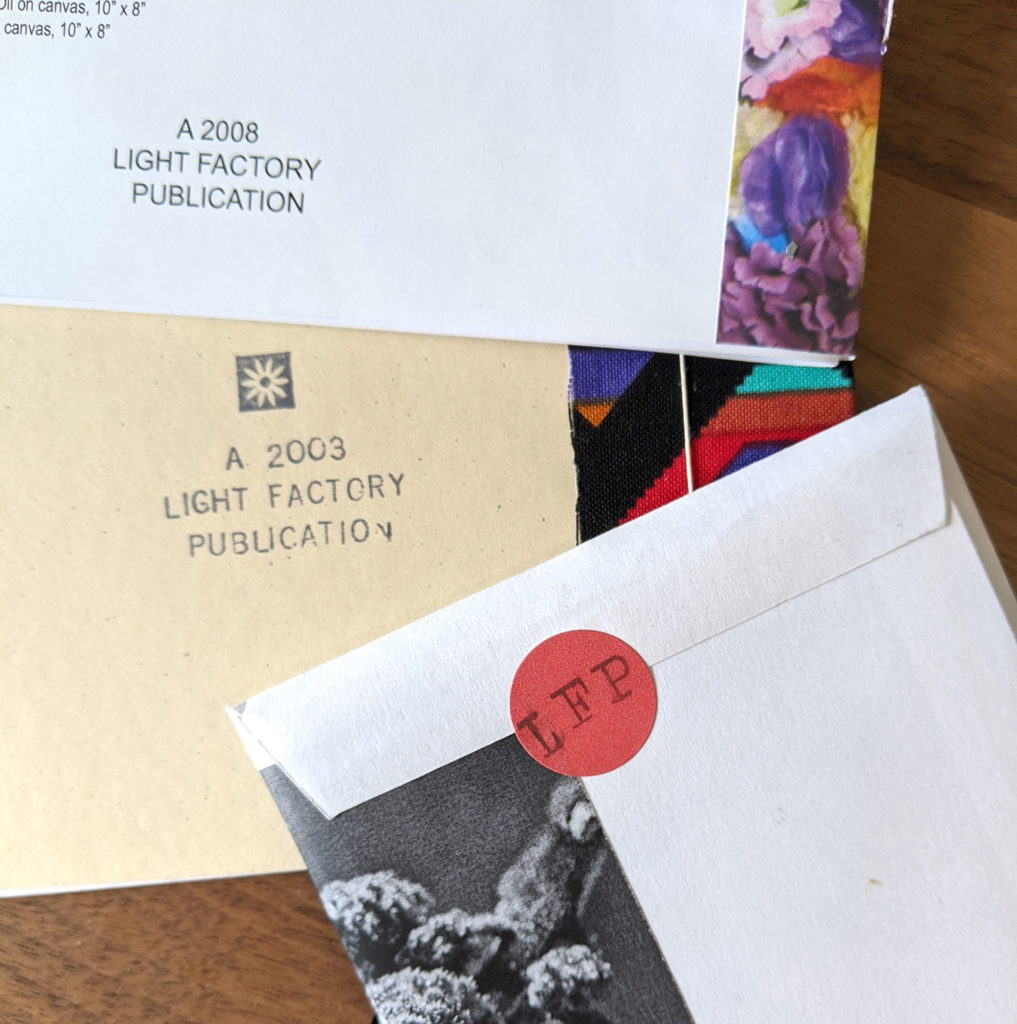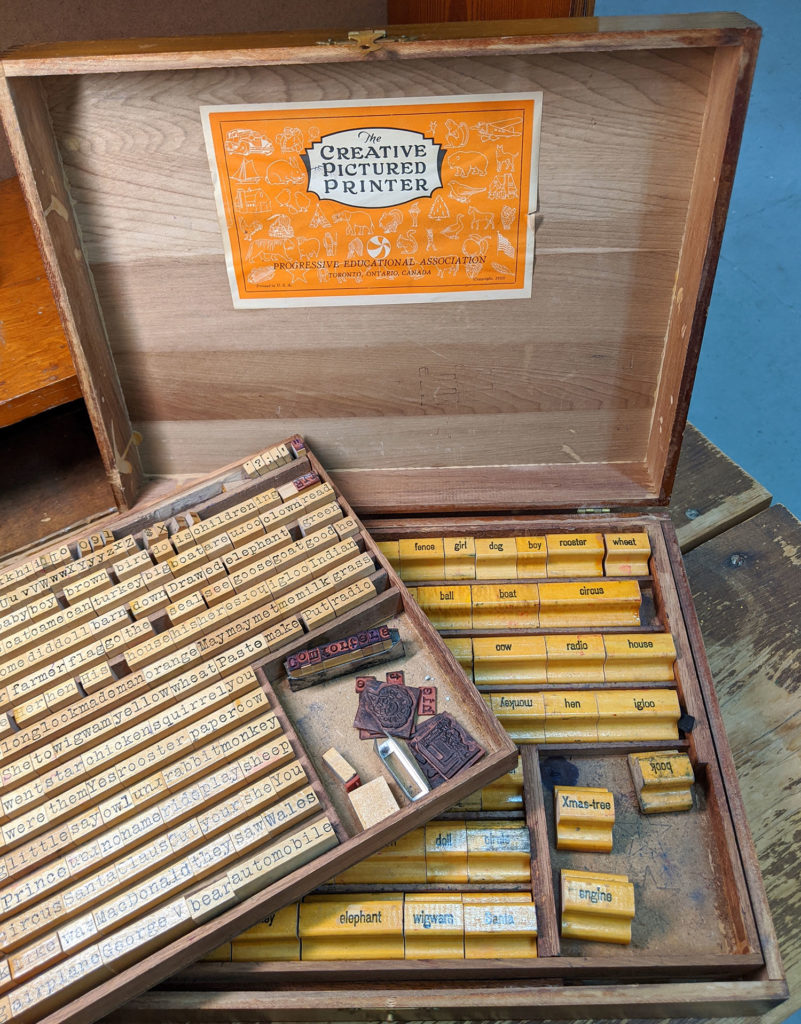
The people behind Light Factory Publications may be housebound as a result of the Corona (COVID-19) virus, but that doesn’t mean that nothing’s happening… far from it. This publication house is busy with a renovation.
This week Vicky Lum sent over ideas for the LFP logo and together we made a selection (see top left corner of the website for the horizontal version). Lum based her suggestions on an assortment of rubberstamps that have branded LFP publications in the past. The irregular typewriter font initials have been rubberstamped on small books, pamphlets and ‘zines for over 20 years. The letters originally came from a box of rubber stamps that was purchased in the 1990s from a benefit auction for the Heritage Arts Centre (Mid West Arts Council, Hamiota, Manitoba). The set had been donated by a retired schoolteacher who recalled using a month’s salary to purchase the box from a traveling salesman, sometime around the 1940s.
A structural re-make of the LFP website has been underway for several weeks. Deanne Achong of goodyBank Design Studio is leading that work with a vault full of good ideas and inspirations. With Deanne’s work we are excited to present LFP’s new on-line home as a place to see titles from LFPs archive, access bosque brotante, the newest work in the Present Cartographers series, and soon access my own on-going project, Reading the Migration Library.

Although the rubberstamped identity hasn’t changed much since it marked (stamped) the back of very small editions of mail art items (mostly assembled hurriedly in the middle of the night before a submission deadline), LFP is an evolving enterprise. Over the years it has been characterized by its flexibility and adaptability. Around 2008 it was described this way,
Light Factory Publications is an itinerant production house that swings into action whenever the need for some swell, small edition multiples emerges. In its selection criteria it privileges projects that make obvious their reliance on collaborations or distribution between individuals over coffee or drinks. LFP relies on the handwork of anyone who needs a lesson or practice in book arts like binding and small publications.”
These days, LFP titles are usually constructed at commercial print shops, and there is less bartering of labour and talent in exchange for skill development and distribution. What remains the same is the way LFP focuses on collaborations with artists at all stages of practice; and the way it consistently features accessible and innovative approaches to artist book design, construction and distribution.
Enough nostalgia, now back to the new website…
Lois Klassen
